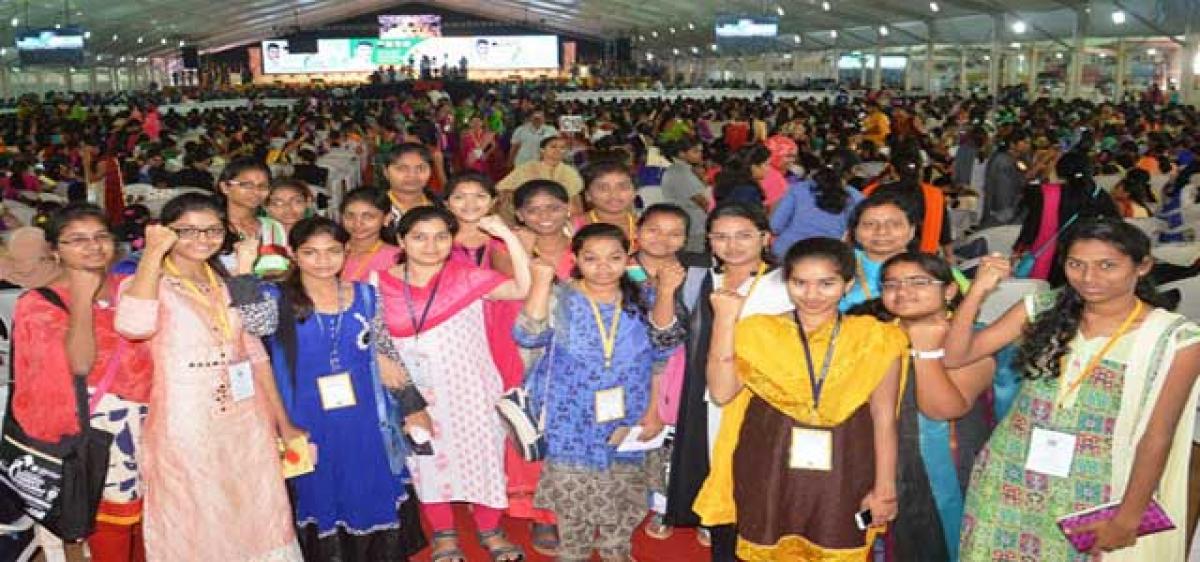Vexatious Rhetoric

Political deception is once again in full spate on women’s reservation bill. This time, the stage for such a vexatious rhetoric is the National Women’s Parliament at Amravati.
Political deception is once again in full spate on women’s reservation bill. This time, the stage for such a vexatious rhetoric is the National Women’s Parliament at Amravati.
It’s reprehensible that in the parliamentary history of India, women’s reservation bill is the only bill that fails to become an act despite an explicit parliamentary majority for it. The flimsy reasons given by the successive governments reveal lack of political will.
The successive governments have been arguing that this bill could not be enacted due to lack of political consensus. Nowhere is it written in the Constitution that a law can be enacted only if there is a political consensus. In fact, many Acts were made despite the strongest opposition to them in Parliament.
The patriarchal political value system is the only hindrance in achieving political empowerment of women.
Democracy is the most representative form of political organisation the human civilisation has heralded so far. There is no meaning of democracy when women who constitute nearly half of the population, have only 12 per cent representation in Indian Parliament.
It is true that influential people would utilise these reservations at the beginning. But in due course, political leadership will emerge as was evident from the experience with SC and ST reservations. Women who enter politics may use their family background at the beginning.
But during the course of their political career they emerge as political leaders on their own. In fact, there are women political leaders who have grown in their political career without any influential family background. It is wrong to oppose women’s reservations on the ground that it will lead to deedhi, beebi, beti syndrome.
Some political parties are opposing the bill on the pretext that it would benefit upper caste women. Such a possibility cannot be ruled out. However, opposing on this ground is uncalled for. No law is final. The law can be suitably amended if political reservations for women disempower OBCs.
Several alternatives are being suggested. The most important among them is to amend the Proportional Representation Act to mandate every political party to field women in at least one-third of the constituencies. But political parties driven by patriarchal values would field women in the constituencies they know they would lose in all probability.
Dual membership in one-third of seats is yet another suggestion. But this would reduce women’s status to a mere titular in nature.
Reserving one-third of seats would mean a substantial increase from the present level of representation and shall be relatively nearer to the women’s share in the population. Any attempt to dilute this is undemocratic.
Yet another proposal is to keep the present strength untouched and create one- third additional seats and reserve them for women. But this will be much less than one-third.
The often quoted argument for not fielding sufficient number of women candidates is the winnability factor. This argument lacks conviction given the fact that women constitute a meager per cent of Rajya Sabha and Legislative Councils seats too.
Such alternatives reflect lack of political will. The only option is to implement the commitment to enact women’s reservation bill.







